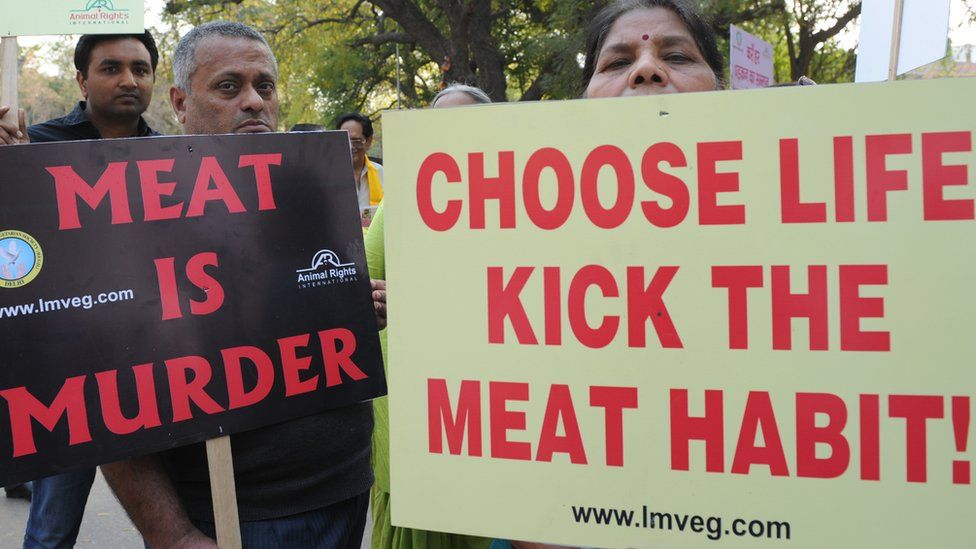In an age of increasing awareness regarding animal welfare, the question of whether one can eat meat while opposing animal cruelty has become a pertinent topic. This dilemma touches upon ethical considerations, personal choices, and societal norms. The intricate relationship between diet and ethics often evokes a multifaceted exploration of our values, beliefs, and the behaviors we espouse. To delve into this complex issue, it is essential to interrogate the fundamental aspects of our connection with animals, the realities of meat consumption, and the moral imperatives that guide our conscience.
As society evolves, so does our understanding of animal sentience and capacity for suffering. Scientific advancements have shed light on the cognitive abilities of various species, prompting a reevaluation of traditional views on the treatment of animals, particularly those raised for food. Awareness of factory farming’s grim realities, where animals lead lives characterized by confinement and distress, has ignited a firestorm of ethical debates. Indeed, many individuals find themselves grappling with cognitive dissonance when contemplating a meal that includes animal products.
The awareness of animal suffering does not uniformly translate to a rejection of meat consumption. For several, it is possible to advocate against cruelty while still participating in a diet that includes animal-derived products. This duality raises crucial questions: What constitutes ethical meat consumption? What principles govern a compassionate approach to dietary choices? These inquiries lead to a deeper consideration of how we define animal welfare and rights.
Ethical omnivorism is often posited as a path for those wishing to align their dietary practices with their opposition to animal cruelty. This philosophy promotes the idea that one can consume animal products as long as they are sourced responsibly and humanely. It emphasizes a commitment to supporting farms that prioritize animal welfare, from free-range poultry farms to pastoral cattle ranches. Here, the critical element lies in transparency; understanding the conditions under which the animals live and the practices employed throughout their life span provides a framework within which ethical meat consumption can occur.
Nevertheless, the very notion of ethical meat raises myriad concerns. The efficiency of production systems, the environmental impact of livestock farming, and the ethical implications of breeding animals for consumption demand careful consideration. The meat industry, even when framed through a compassionate lens, remains a complex web of challenges that demand vigilance and advocacy. It is imperative for consumers to balance their appetite for meat with the urgent need to reduce animal suffering.
Advocates for animal rights often emphasize the concept of non-human personhood, wherein animals are recognized not purely as commodities but as sentient beings capable of experiencing joy and pain. This perspective challenges the classic frameworks of meat consumption that have dominated culinary traditions for centuries. It beckons society to reconsider the morality of eating animals at a time when alternatives grow ever diverse. Plant-based diets, lab-grown meat, and other innovative food sources present tantalizing opportunities to transcend the age-old ethical dilemmas associated with animal food products.
The allure of meat often lies in its cultural significance and presence in culinary histories worldwide. As such, the emotional and social ties that connect individuals to their food cannot be understated. Family gatherings, cultural rituals, and communal feasts frequently center around meat dishes, intertwining social identity with dietary habits. To extricate oneself from this well-entrenched relationship requires not only introspection but also societal support for alternative dietary pathways.
Importantly, the discourse surrounding meat consumption cannot overlook socioeconomic realities. In various communities, access to plant-based alternatives may be limited, rendering a total rejection of meat an impractical choice. Addressing these disparities necessitates systemic change and an emphasis on promoting sustainable practices that make ethical food accessible to all. The narrative surrounding animal rights must consequently evolve to encompass socioeconomic dimensions, recognizing that compassion must extend beyond ideology and encompass communities deprived of choices.
In navigating these multifaceted issues, it is crucial to promote dialogue rather than division. Individuals who eat meat yet oppose cruelty offer a vital voice in the conversation about animal welfare. This perspective fosters inclusion and presents an opportunity for engagement with wider audiences. Recognizing that everyone is on a journey allows space for growth and change. Each dialogue held, each choice made, serves as a potential stepping stone toward greater awareness and compassionate practices.
Ultimately, the question of whether one can eat meat while opposing animal cruelty invites profound reflections on our values, ethics, and responsibilities as consumers. It encourages contemplation about the systems we support with our choices and the enduring impact those choices can have on both the environment and the lives of countless beings. As the conversation evolves, it is essential to strive for a balanced approach, one that acknowledges the complexity of human behavior and aspires to create a more compassionate future for all beings.
In conclusion, reconciling a love for meat with an opposition to animal cruelty is not merely a matter of dietary preference; it evokes a deeper commitment to ethical living. It invites individuals to advocate for humane practices, support transparent food systems, and engage in meaningful conversations that bridge gaps and foster understanding. As society progresses, the challenge will be finding common ground—one where our dietary choices align more closely with our ethical beliefs, promoting a world where kindness prevails.








